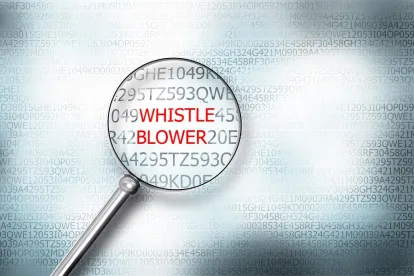In a pair of recently issued decisions, the Department of Labor’s Administrative Review Board (ARB) held that Sarbanes Oxley’s anti-retaliation provision does not apply extraterritorially. Hu v. PTC, Inc., ARB Case No. 2017-0068 (Sept. 18, 2019); Perez v. Citigroup, Inc., ARB Case No. 2017-0031 (Sept. 30, 2019).
Hu Decision
In Hu, the complainant worked entirely in China for a foreign subsidiary of a U.S. company. He claimed that his employment was terminated in violation of SOX after he reported alleged misconduct relating to the U.S. parent company’s financial statements. The sole issue before the ARB was whether SOX’s anti-retaliation provision (Section 806) covered the complainant’s claim of retaliatory discharge in China. The ARB held that it did not, following the two-step framework for analyzing extraterritoriality set forth by the Supreme Court in Morrison v. National Australia Bank, Ltd., 561 U.S. 247 (2010).
At the first step of the Morrison analysis—assessing whether the statute at issue extends beyond the U.S.—the ARB held that Section 806 is not extraterritorial, observing that there is no indication that Congress intended for it to apply extraterritorially.
At the second step of the Morrison analysis—evaluating the primary focus of the statute and where the activity comprising that focus occurred—the ARB held that Section 806’s primary focus is on retaliatory employment actions. The ARB reasoned that Section 806’s focus on the terms and conditions of employment is distinct from the overarching purpose of SOX as a whole (to protect markets) and, therefore, the location of the employee’s principal workplace is the key factor to consider when deciding whether the employee is seeking to invoke Section 806 extraterritorially. The ARB rejected the complainant’s argument that his Section 806 claim was domestic because his reports allegedly affected the U.S. securities market and because the termination decision may have been made in the U.S. Ultimately, the Board affirmed the dismissal of the whistleblower claim because the complainant’s principal place of work was in China.
Perez Decision
In Perez, the complainant worked solely in Mexico for a subsidiary of a U.S. corporation. He alleged that he was retaliated against for reporting concerns about activity in a U.S.-based account. Relying heavily on its decision in Hu, the ARB again held that Section 806 did not apply extraterritorially and affirmed the ALJ’s dismissal of the whistleblower claim because the complainant exclusively worked in Mexico, and not the U.S.
Implications
Prior to the Hu and Perez decisions, the ARB in Blanchard v. Exelis Systems Corp./Vectrus Systems Corp., ARB Case No. 15-031 (August 29, 2017) (which we previously blogged about here) signaled in dicta that Section 806 could potentially apply extraterritorially. The Hu and Perez decisions seemingly close that door and harmonize the Board’s position with numerous court decisions (see here and here) rejecting the extraterritorial application of SOX’s anti-retaliation provision.




 />i
/>i

